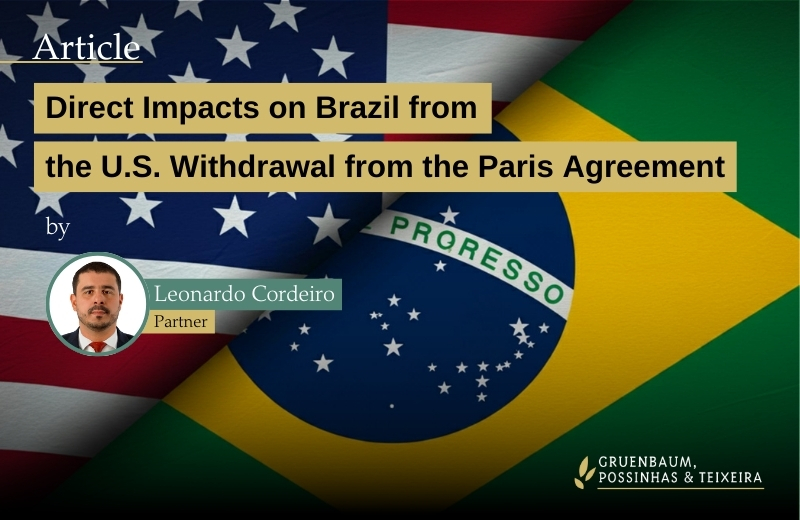Direct Impacts on Brazil from the U.S. Withdrawal from the Paris Agreement

The impacts of the United States’ withdrawal from the Paris Agreement are broad and reflect a global weakening of the climate agenda rather than something directly specific to Brazil. This is a movemen with systemic repercussions that affect the balance of international climate negotiations as a whole. In the Brazilian context, the effects are felt indirectly but significantly, due to the country’s strategic position on environmental issues such as Amazon preservation, the role of agriculture and agribusiness, and leadership in renewable energy.
It is crucial to understand whether the United States’ strategic partners will follow the same path, further contributing to the weakening of this agenda on the global stage. Furthermore, the positioning of economic and political blocs such as the European Union and China will be decisive in assessing the real impact of this decision.
Although concerning, this is not a problem isolated to Brazil but rather a threat to the advancement of one of humanity’s most urgent agendas. It is up to Brazil and other countries to act collaboratively to ensure that the issue does not lose relevance on the global stage.
Donald Trump’s recent statement that the United States “does not depend on Brazil or Latin American countries” could pose a diplomatic issue, as it disregards the complexity of relations between the two nations, particularly in the trade context. Brazil is one of the largest exporters of agricultural commodities to the U.S. market, including soybeans, coffee, and beef—products essential to the United States’ supply chain. While President Trump’s statement attempts to downplay Brazil’s importance, the commercial interdependence and the country’s strategic role as a supplier of food and natural resources to the world demonstrate that this simplistic view is far from reality. This stance not only ignores Brazil’s economic relevance but also the impact that U.S. environmental and trade policy decisions can have on the global stage.
In such a delicate moment, it is essential to remember that this year Brazil will host COP 30, one of the world’s most important climate events. The U.S. decision to withdraw from the Paris Agreement must not, in any way, diminish the relevance of the climate agenda or weaken Brazil’s role as one of the leading global players in the environmental debate. Hosting COP 30 reinforces both the responsibility and the opportunity for Brazil to lead the discussion and implement concrete sustainable solutions, grounded in the bioeconomy, to address climate challenges.
